
These stories are clever and funny. The book makes me think of a grown-up version of Diary of a Wimpy Kid, without the pictures. Actually that probably makes it sound far less good than it really is.
Continue reading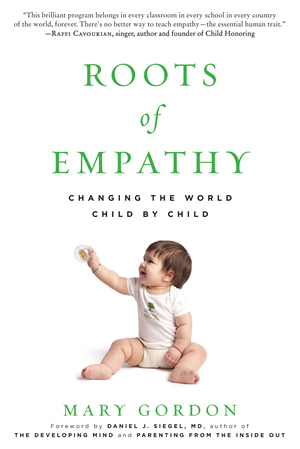 Roots of Empathy is a program that tries to teach schoolchildren empathy. Empathy is a crucially important quality: it can help overcome the problem of the “ethical fade“. And it seems obvious that empathic people are probably just nicer people.
Roots of Empathy is a program that tries to teach schoolchildren empathy. Empathy is a crucially important quality: it can help overcome the problem of the “ethical fade“. And it seems obvious that empathic people are probably just nicer people.
Roots of Empathy works through regular class visits from a newborn baby and parent. Over the year of the Roots of Empathy program, the schoolchildren are able to see the baby grow and develop, and experience first-hand the bond between parent and baby. It seems to be quite successful in instilling worthwhile values, even in children that are hard to reach any other way. This books describes the program and tells its story.
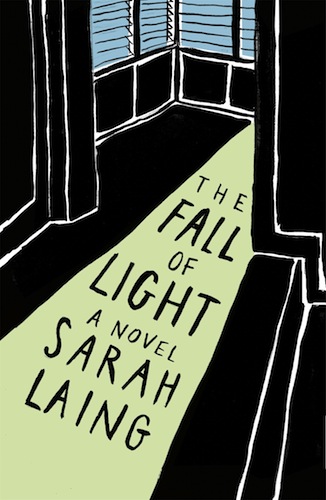 I like this book. It has a story to make you happy and sad, pictures to make you wonder, and themes to make you think.
I like this book. It has a story to make you happy and sad, pictures to make you wonder, and themes to make you think.
Sarah Laing is a cartoonist as well as a writer — I knew of her work from magazines and from her blog Let Me Be Frank. I read a review of The Fall of Light somewhere and thought it sounded interesting. Sometime later I realised that the cartoonist/blogger was also the novelist, so I went out and bought the book.
The story details the fall and rise of Rudy Chapelle, an Auckland architect. He struggles with his job, his colleagues, his ex-wife, his children, his friends, his neighbours, and his parents. In short, he struggles. He is actually pretty annoying in many ways, quite precious and a bit self-obsessed. I could appreciate why his ex-wife was his ex-wife. But he’s not a bad guy really, and it’s good to see him slowly overcome himself despite himself. Many of the other characters in the book are very engaging and likeable though. And so is the setting — Auckland — but maybe just because I live there too.
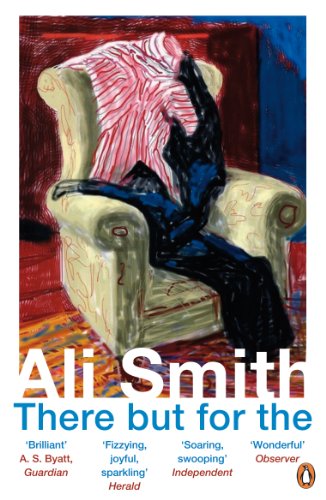
Have you ever been at some awful social gathering and just wanted to get up and walk out? Have you ever been at a stranger’s lovely house and wished you lived there instead of your own hovel?

Redirect lays out a set of techniques for achieving real, lasting change in our behaviour and improving our lives. Actually, this book doesn’t really tell you what to do — it isn’t a self-help book — instead, it describes why these techniques work so well (and also points out that many other ideas don’t).
Story-editing is a way to change behaviour indirectly, by changing the narratives we all have about the kinds of people we are, and the way we interpret the thing that happen to us. This is important because flawed concepts of ourselves and others leads us to all kinds of damaging cognitive errors (see also, for example, Mistakes Were Made (But Not By Me) and Blind Spots). All of us fall prey to these errors. Yes, that includes you. (Also, me.) Wilson also talks about story-prompting, subtle ways to influence behaviour for the better (or otherwise, as the advertising industry has discovered). This is covered thoroughly by another book, Nudge, which I have read but somehow forgot to write about.

“What if you had the chance to live your life again and again, until you finally got it right?” This plot micro-summary was enough to make me pick up this book. That and Kate Atkinson’s reputation. I had planned to read her first novel when it was released; then her second and third, but somehow I never managed to read any of them. I probably will now.
So I wondered, suppose you did get the chance to live your life again and again. How would you know that you were getting repeat chances? And how would you know when you finally got it right? And then what would happen? Atkinson manages to convincingly address these questions, but without letting the technical issues dominate an affecting story of an engaging and (necessarily) resilient protagonist living through two world wars. The story is about her inner life, her family life, and society during these unimaginably difficult times.
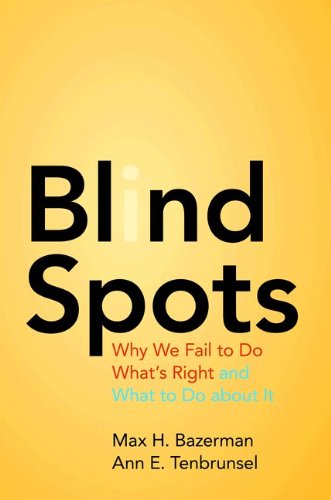
This book is all about the field of Behavioural Ethics — how what we do is affected by the way we think about what we do. And vice versa. (Perhaps I could have explained that better.) Probably the most important concept is the idea of Ethical Fade, which happens when a problem with a strong ethical dimension is recast as a different kind of problem. For example, company executives trying to decide how much to charge for some drug might think of it as purely a business decision; the ethical element fades away, leading to a decision that may benefit the company’s profits but is actually at odds with what the executives would normally wish to do.
This is related to the hoops that our minds jump through in trying to reduce feelings of cognitive dissonance. This idea is developed more in an earlier book, Mistakes Were Made (But Not By Me).
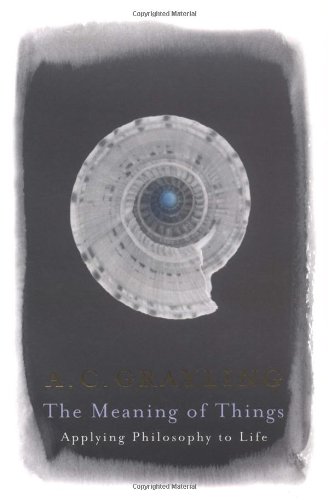
This book of thoughtful mini-essays on life’s big topics is a pleasure to read. But maybe I only think that because I agree with a lot of what Grayling has to say. But maybe I only agree with him because he’s right. You’ll have to read it and decide for yourself.
Most of the essays are only a page or two, so this is a good book to delve into at random. (In fact that’s what Grayling recommends. I always ignore recommendations like that though — I’m a “begin-at-the-beginning” kind of guy.) They are grouped into three categories: Virtues and Attributes (such as Fear, Death, and Blame); Foes and Fallacies (Racism, Christianity, Capitalism); and Amenities and Goods (Education, Reading, Age). The essays originally appeared as newspaper columns, so there is some repetition and a few rough edges — the book could do with a bit of editing.
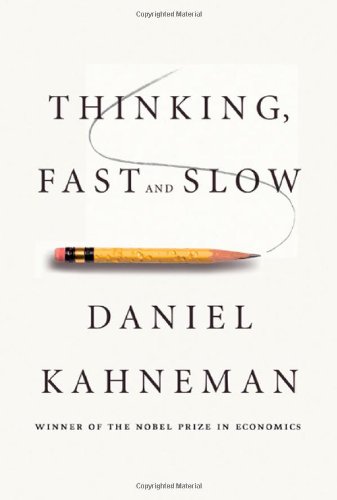
My friend David lent me this book after telling me that it had been blowing his mind. I’m not sure if it has blown my mind, but it definitely helped me to understand it a bit better.
Kahneman suggests thinking of the mind as composed of two notional systems: the fast-thinking, intuitive System 1; and the slow, deliberate, accurate but lazy System 2. The interplay between these two results in the amazing, yet often incomprehensible, behaviour of our minds.